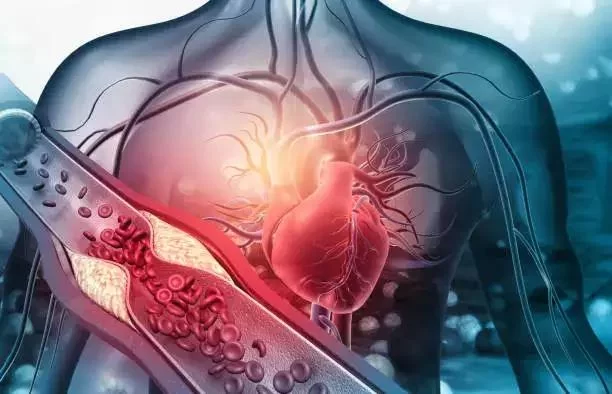Advancements in Heart Disease Research: Latest Discoveries and Treatment Innovations
- 1. Major Breakthroughs in Heart Disease Research
- 2. The Role of Genetic Research in Understanding Heart Disease
- 3. Advances in Heart Disease Treatment: What's New?
- 4. Real-Life Examples: How Heart Disease Research Saves Lives
- 5. How These Advancements in Heart Disease Research Affect You
1. Major Breakthroughs in Heart Disease Research
Heart disease continues to be one of the leading causes of death worldwide, making advancements in heart disease research critically important. Over the last decade, there have been groundbreaking discoveries that have significantly improved our understanding of cardiovascular health and how to combat heart disease.
One of the most exciting developments in recent years is the discovery of new biomarkers that help predict the risk of heart disease long before symptoms appear. Researchers are now able to detect early warning signs by analyzing blood tests and imaging techniques, which were once only accessible in advanced stages of the disease.
Additionally, the development of new imaging technologies has allowed scientists to track the progression of heart disease in real-time. With tools like MRI scans and CT scans, doctors can get a more precise view of the heart’s condition, leading to earlier interventions and more effective treatments.

2. The Role of Genetic Research in Understanding Heart Disease
Genetic research has become a major focus in the fight against heart disease. Studies on genetic markers have revealed that heart disease can run in families, and certain genes may predispose individuals to an increased risk of cardiovascular issues. The latest advancements in heart disease research have focused on understanding how these genetic factors interact with lifestyle and environmental factors to contribute to the development of heart disease.
By identifying specific genes related to heart disease, researchers can now offer personalized treatment options based on a patient’s genetic makeup. This personalized approach means that doctors can provide more targeted therapies and preventive measures, increasing the chances of successful treatment outcomes.
In addition, advancements in gene editing technologies, such as CRISPR, have opened up the possibility of directly modifying genes that contribute to heart disease. While still in its early stages, gene therapy holds great promise for not only treating existing heart conditions but also preventing them in future generations.
Atlanta Heart Specialists
atlanta heart specialists
4375 Johns Creek Pkwy #350, Suwanee, GA 30024, USA

3. Advances in Heart Disease Treatment: What's New?
Advancements in heart disease treatment have been just as significant as those in research. One of the most notable developments is the improvement of surgical techniques, such as minimally invasive heart surgery. These procedures allow doctors to repair or replace damaged heart valves or blood vessels without the need for large incisions, which significantly reduces recovery time and the risk of complications.
Another breakthrough is in the area of heart transplants. With the development of better immunosuppressive drugs and improvements in organ preservation, the success rate for heart transplants has dramatically increased. In fact, heart transplant patients are now living longer and healthier lives thanks to these advancements.
Furthermore, new medications have been developed to treat heart disease more effectively. Statins, blood thinners, and other drugs are now more targeted and tailored to a patient’s specific condition, improving outcomes and minimizing side effects. Researchers are also working on developing drugs that can reverse the effects of heart disease, such as regenerating damaged heart tissue and restoring heart function.
4. Real-Life Examples: How Heart Disease Research Saves Lives
One of the most impactful examples of how advancements in heart disease research can save lives comes from the use of statins, a class of drugs used to lower cholesterol levels and reduce the risk of heart attacks. In one real-life case, a man in his 50s was diagnosed with high cholesterol and a family history of heart disease. After starting a statin regimen, his cholesterol levels dropped, and he avoided a potentially fatal heart attack. This is just one example of how heart disease research has directly impacted patients by providing new, more effective treatments.
Another remarkable example comes from the development of 3D-printed heart valves. In a groundbreaking procedure, surgeons were able to use a 3D-printed valve to replace a damaged one in a patient who was too old for traditional surgery. This innovative solution not only saved the patient’s life but also improved their quality of life, showcasing how advancements in heart disease research can offer life-changing treatments.
5. How These Advancements in Heart Disease Research Affect You
Advancements in heart disease research have a profound impact on individuals, both in terms of prevention and treatment. As we learn more about the genetic factors, environmental influences, and new treatments available, people can take proactive steps to reduce their risk of heart disease.
If you have a family history of heart disease or other risk factors, understanding the latest research can help you make informed decisions about your lifestyle and healthcare. For example, by staying updated on the latest treatments and diagnostic tools, you and your healthcare provider can catch potential problems early, when they’re most treatable.
Additionally, if you or a loved one is currently living with heart disease, the advancements in heart disease research mean better treatments, improved outcomes, and a higher quality of life. Whether it’s through genetic testing, new medications, or innovative surgical options, these advancements provide hope for the future of heart health.
As the field continues to progress, it’s important to stay informed and take advantage of these developments. At Rescue & Towing, we understand the importance of heart health and support those who are seeking information about heart disease treatment and prevention. To learn more about the latest heart disease research and how it can impact your life, consider consulting with a healthcare professional today.






















Deborah Heart and Lung Center
deborah heart and lung center
200 Trenton Rd, Browns Mills, NJ 08015, USA